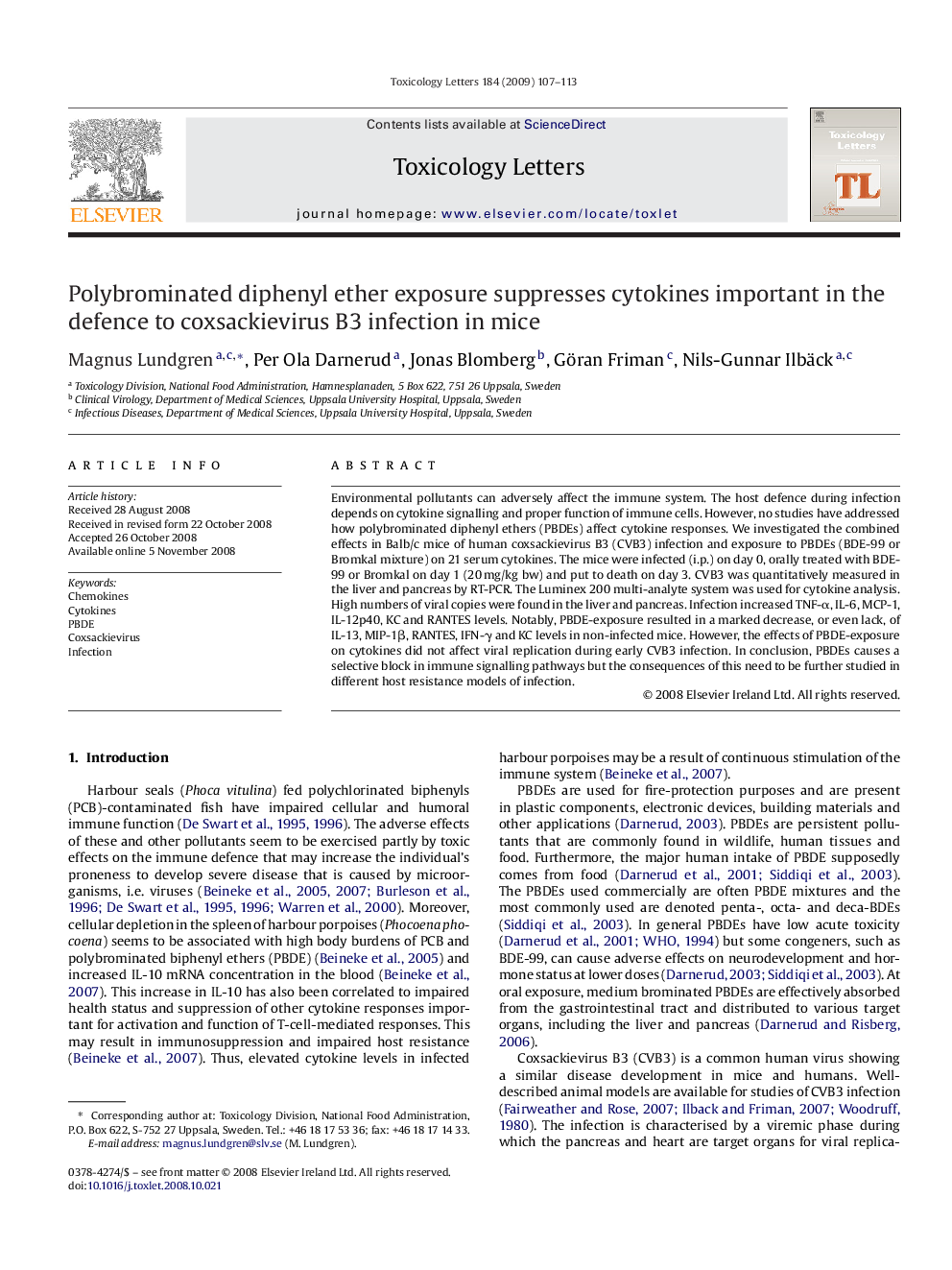| Article ID | Journal | Published Year | Pages | File Type |
|---|---|---|---|---|
| 2601252 | Toxicology Letters | 2009 | 7 Pages |
Environmental pollutants can adversely affect the immune system. The host defence during infection depends on cytokine signalling and proper function of immune cells. However, no studies have addressed how polybrominated diphenyl ethers (PBDEs) affect cytokine responses. We investigated the combined effects in Balb/c mice of human coxsackievirus B3 (CVB3) infection and exposure to PBDEs (BDE-99 or Bromkal mixture) on 21 serum cytokines. The mice were infected (i.p.) on day 0, orally treated with BDE-99 or Bromkal on day 1 (20 mg/kg bw) and put to death on day 3. CVB3 was quantitatively measured in the liver and pancreas by RT-PCR. The Luminex 200 multi-analyte system was used for cytokine analysis. High numbers of viral copies were found in the liver and pancreas. Infection increased TNF-α, IL-6, MCP-1, IL-12p40, KC and RANTES levels. Notably, PBDE-exposure resulted in a marked decrease, or even lack, of IL-13, MIP-1β, RANTES, IFN-γ and KC levels in non-infected mice. However, the effects of PBDE-exposure on cytokines did not affect viral replication during early CVB3 infection. In conclusion, PBDEs causes a selective block in immune signalling pathways but the consequences of this need to be further studied in different host resistance models of infection.
